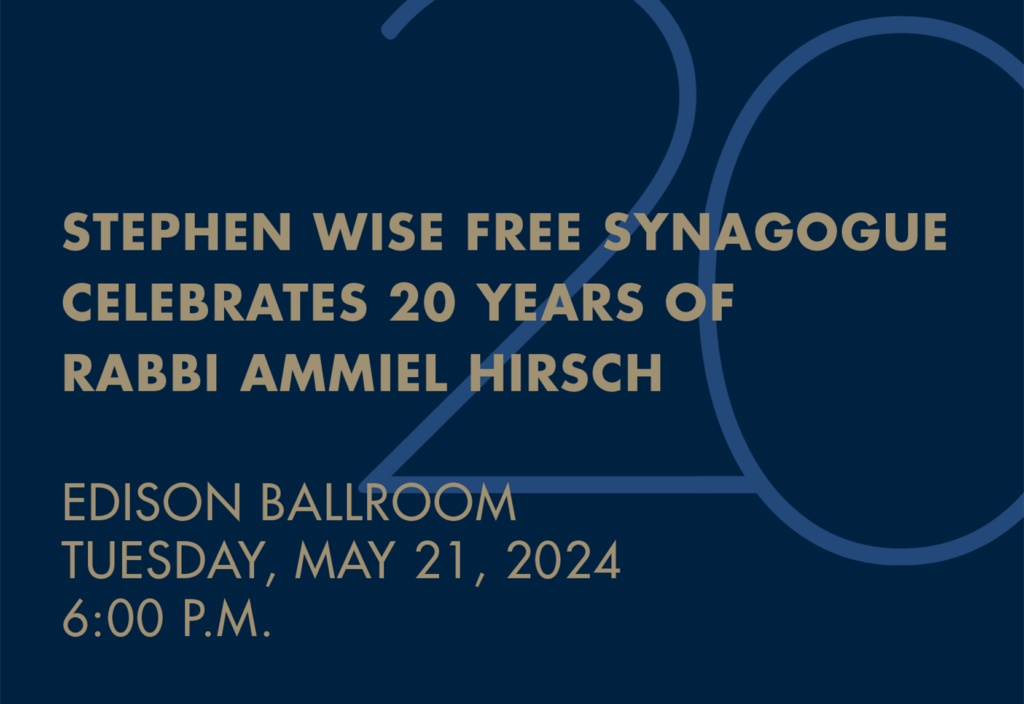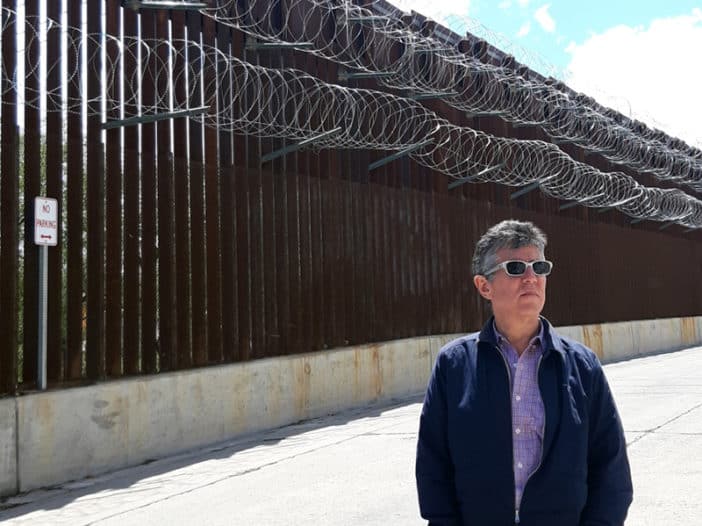
Compelled by our Jewish values, Stephen Wise Free Synagogue traveled to the American Southwest, where a humanitarian crisis has been unfolding along our borders.
On our first full day, we visited Nogales, Arizona, where there is an official crossing into Nogales, Mexico. We explored the landscape – including the manmade barriers, complete with concertina wire – and how it is used as a deterrent and to hide the plight of migrants.
We also challenged our expectations and assumptions: there were no riots or encampments near the fence – in fact, life in Nogales seemed quite normal. Workers and groups of schoolchildren crossed in and out of Mexico without incident. It quickly became clear that the situation is much more gray than black or white, and the humanitarian crisis is more of a hidden one than what the media portrays.
We met migrants and heard their incredible stories of escaping their dangerous home countries, the treacherous journeys they made to reach the U.S. border, the cruelty and kindness of strangers, and the nightmare of applying for asylum.
At the U.S. District Court in Tucson, we attended a fast-tracked Operation Streamline court proceeding, which the federal government uses to quickly remove unauthorized border crossers from the country.
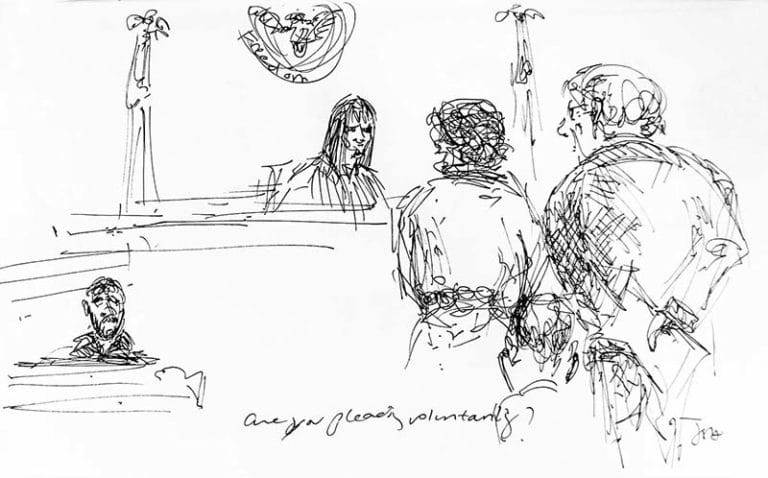
The judge repeated the same words to each of some 50 offenders, who were shackled and brought before her in batches of about 10 to plead guilty to “Illegal Entry”/8 U.S.C. 1325:
“Are you thinking clearly today and are you pleading guilty voluntarily of your own free will?
“Other than what’s in your plea agreement, have any promises been made to you to get you to plead guilty, or have you been forced or threatened to plead guilty?
“Do you understand the charges against you and the consequences of your plea?
“Is it true that you are not a citizen or national of the United States and on May 19 of this year you entered the United States without going through a port of entry?”
But despite the Kafkaesque assembly-line style of justice, the judge seemed genuinely concerned with treating each defendant as a person: she noted any errors with their cases or special circumstances their lawyers presented and made sure to respect their rights. Is there a problem with the law or its enforcement and application?
We started our final full day by hearing from Curt Prendergast, who covers the border and immigration issues for the Arizona Daily Star.
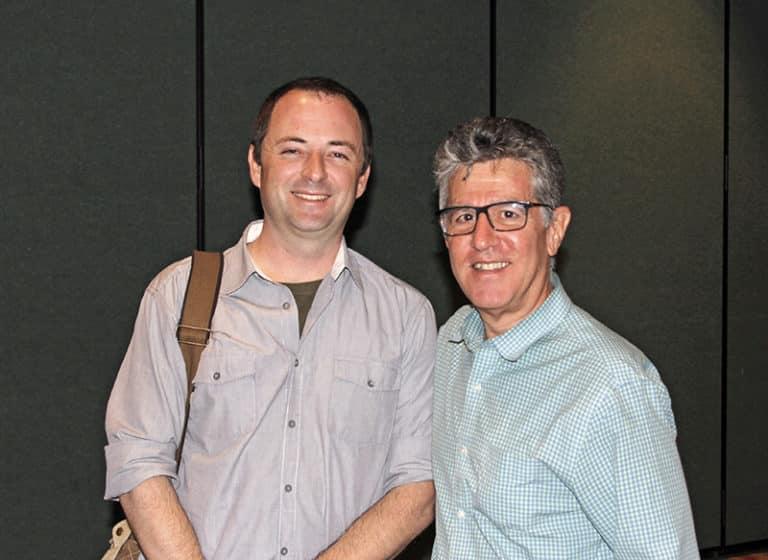
As someone who speaks to immigration authorities, authorities on immigration, and immigrants on a daily basis, Curt helped bring some balance to what we had been learning, and helped us think about new ways to frame our questions.
Next, we met with Tucson Mayor Jonathan Rothschild, who gave us some invaluable background on how immigration issues have changed since he took office. He praised the local Jewish community’s work with migrants and their volunteerism with the sanctuary movement.
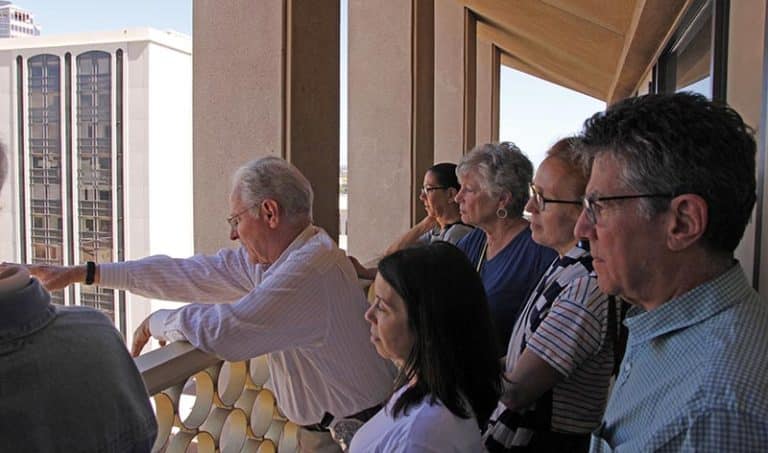
And, in what he called a “Sarah Palin moment,” the mayor took us up to his City Hall office to admire the view of Mexico.
We also heard from the boots on the ground, the Border Patrol agents who track down unauthorized border crossers between ports of entry, arrest and detain them, and also sometimes buy them lunch or save their lives. It disturbed many of us when they discussed the military-style hardware they use to get their jobs done, but we also recognized that there is a legitimate need for security along our borders.
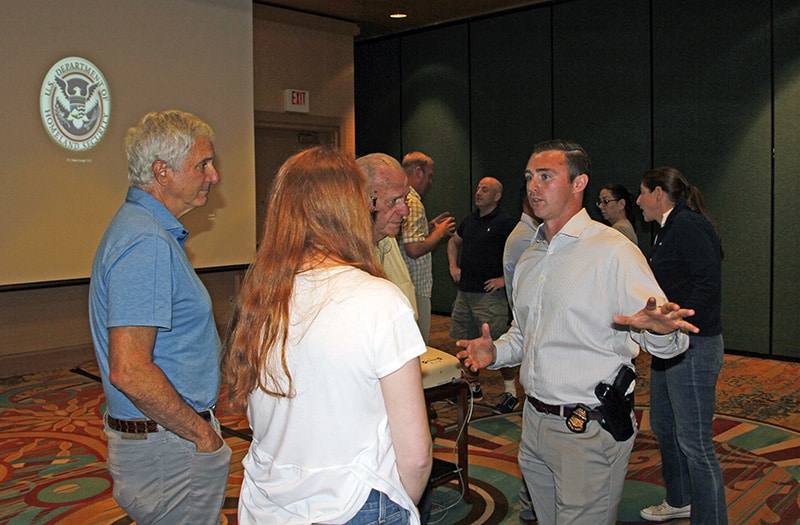
We ended the mission on hopeful note, hearing from how Congregation Or Chadash helps out where they can, such as by supporting The Florence Project to provide legal representation to detainees or by helping out at sanctuaries and job fairs. And we reflected on the Jewish values and teachings that had brought us there in the first place: how we, as a people, come from slaves; how we have an obligation to take care of the stranger, the widow, and the orphan among us; and how with oppression removed, people will flourish.
Oscar Wilde wrote, “The truth is rarely pure and never simple,” and Martin Luther King Jr. once said, “Let us realize the arc of the moral universe is long, but it bends toward justice.” We’re still sifting through what we learned, and we know we have our work cut out for us, but we intend to create a plan to make a difference in our corner of the world.
If you’re interested in immigration and refugee issues, please consider joining our Immigration and Refugees Task Force and getting involved in social justice work at Stephen Wise Free Synagogue.


